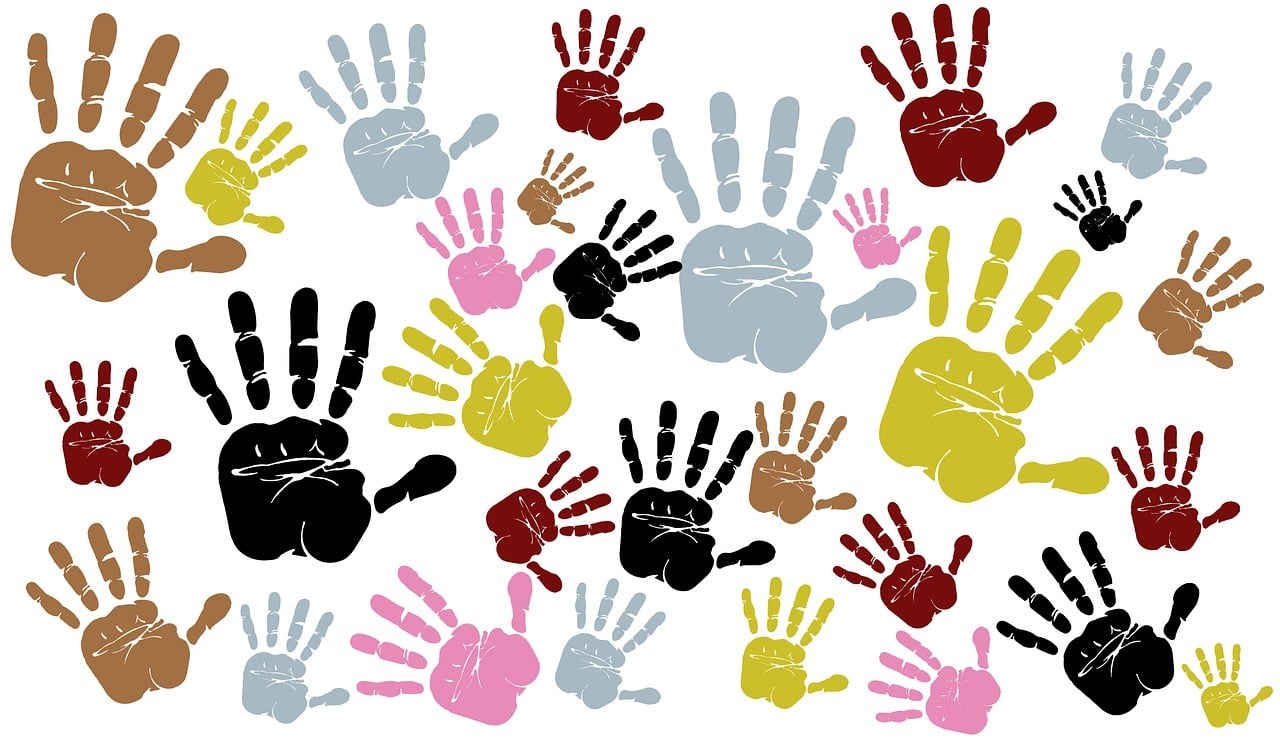Picture this: someone charming catches your eye, the conversation sparkles, and your ego gets a friendly boost. Then a quiet reminder rises-your heart and promises already have a home. That inner recalibration is not prudishness, it is the living pulse of loyalty in a relationship. In a world that serves endless options at the swipe of a thumb, choosing the person you chose-again and again-becomes an intentional practice, a way of showing up that protects trust, nurtures warmth, and keeps love sturdy when life gets breezy or rough.
What Loyalty Really Means
Loyalty is not a single grand vow whispered on a milestone day; it is the day-to-day allocation of your emotional attention. It is where your curiosity goes, where your kindness lands, and where you let yourself be deeply known. When you commit to one another, you are promising a steady presence-reliability, honesty, and care that does not disappear when moods shift. This steadying choice is the scaffolding that allows closeness to grow without fear. That is why loyalty in a relationship often feels like an invisible safety net-less drama, more gentle certainty.
Think of it as a quiet agreement: we handle attraction, frustration, and uncertainty with care; we keep our connection the main channel, not a side project. The result is not perfection but predictability-your partner learns that your words and actions will line up. Over time, that alignment reinforces trust, and trust is the soil where loyalty in a relationship roots itself and thrives.

The Inner Mechanics: Why Loyalty Feels So Stabilizing
Our early experiences teach us what love might feel like-safe, unreliable, distant, or warm. When those templates are secure, we tend to reach for closeness without panic and give space without fear. When they are shaky, we may brace for abandonment or guard against being controlled. None of this dooms anyone; it simply explains why some people glide toward devotion more easily while others need practice and patience to settle. Either way, the skills are learnable, and the benefits of loyalty in a relationship are worth the effort.
Loyalty also speaks to identity. It is not only who you choose, but also the kind of person you choose to be. You are building a reputation with your partner-someone who tells the truth when it is awkward, who stays when things wobble, and who protects the bond from avoidable harm. That personal ethic-lived in small behaviors-keeps the partnership resilient when storms roll in.
The Core Ingredients That Make Devotion Work
Before techniques and tips, a handful of qualities make commitment feel reliable. Practice them, and the rest becomes far easier-because loyalty in a relationship is easier to keep when the basics are strong.

- Trust. Trust grows when words and actions match-again and again. It lets both of you relax, share more, and stop checking for exits. Nothing invites loyalty like the comfort of believing each other.
- Emotional availability. Show up with your feelings and make room for your partner’s. Availability is not endless talking-it is the willingness to be reached, heard, and soothed.
- Consistency. Reassurance comes from repetition. When your partner knows how you handle stress, schedules, and hard news, they can lean on you with confidence-consistency makes loyalty livable.
- Self-discipline. Temptations happen. The skill to pause, remember your values, and choose the relationship is a muscle you can train-the same patience that resists a quick thrill protects loyalty in a relationship.
Daily Practices That Keep Love Steady
Devotion shows in habits. Here are practical moves-some simple, some stretching-that, layered together, make loyalty in a relationship feel natural rather than forced.
- Open, honest communication. Say the true thing kindly. Share needs, name concerns early, and listen for the feeling underneath the words. Transparency reduces guesswork and protects closeness.
- Prioritize your partner’s needs. Grand gestures are rare; small ones are daily. Send the reassuring text, handle the chore unasked, sit beside them when the day is heavy. These quiet choices are the heartbeat of care.
- Keep healthy boundaries with others. Friendships matter. So does clarity. Flirtatious ambiguity muddies the waters; respectful boundaries keep your emotional energy aimed where it belongs-toward loyalty in a relationship.
- Honor both emotional and physical fidelity. Intimacy is not only about bodies. If your best stories, comfort, or fantasies consistently skip your partner, your connection starves. Feed the bond first.
- Stay during the hard seasons. Sickness, setbacks, and disappointments test resolve. Show you are not a fair-weather teammate-your steadiness in struggle is one of the purest forms of devotion.
- Keep promises and follow through. Reliability is romance in work boots. From the tiny errand to the meaningful plan, doing what you said you would do reinforces trust-and loyalty in a relationship deepens.
- Schedule regular check-ins. Put connection on the calendar. Ask what is working, what is wobbly, and what would feel better. Short, consistent tune-ups prevent the need for major repairs.
- Align on shared goals and vision. Compare maps-lifestyle, money, family dreams, values. Even when individual paths diverge, agreeing on the direction strengthens unity and sustains loyalty in a relationship.
- Celebrate each other’s wins. Be their first applause and loudest cheer. Pride in your partner’s growth makes love expansive rather than competitive.
- Stop keeping score. Fairness matters; tallying does not. When every kind act becomes a debt, generosity dies. Give, receive, and renegotiate without weaponizing the ledger.
- Practice forgiveness. Missteps are inevitable. Owning harm, repairing it, and releasing it keeps resentment from calcifying. Forgiveness is fuel for long-term closeness-and for loyalty in a relationship that lasts.
- Maintain your identity. Interdependence is not erasing yourself. Protect hobbies, friendships, and solitude. A vivid self makes the partnership richer, not threatened.
- Be transparent about finances. Money secrecy breeds anxiety. Share realities and plans. Build a system that matches your personalities-clarity here is protection for trust and loyalty in a relationship.
- Listen like it matters. No multitasking; mirror back what you heard; ask a follow-up. Feeling understood is a kind of intimacy that words alone cannot create.
- Encourage growth. Champion the class, the career move, the creative risk. When both people evolve, love stays dynamic instead of stale.
- Make time-on purpose. Put phones down, take a walk, cook together, linger. Attention is the currency of attachment; spend it where it counts.
- Avoid speaking poorly about your partner. Venting to win sympathy can bruise the bond. Address issues directly; protect your partner’s dignity in their absence.
- Value their perspective. You will not agree on everything. Still, let their view shape the outcome sometimes. Respect fosters cooperation and loyalty in a relationship.
- Offer thoughtful surprises. Unplanned kindness-notes, snacks, a planned afternoon-keeps delight alive. Novelty is a spark, not a substitute for substance.
- Keep romance alive. Ritualize affection-a lingering kiss, warm words at the door, an unhurried evening. Small rituals say, over and over, “you matter,” which keeps loyalty in a relationship warm and reachable.
Common Misunderstandings to Let Go Of
Mislabeling devotion can strain even solid partnerships. Clearing the fog helps both people aim their efforts wisely-because confusion about loyalty in a relationship often creates avoidable hurt.
- Loyalty is not tolerating poor behavior. Kindness without boundaries is not devotion; it is self-abandonment. Mutual respect stays non-negotiable.
- Loyalty is not blind faith. Trust should rest on observable care and consistency, not wishful thinking. Skepticism handled kindly is part of wisdom.
- Loyalty is not one-sided. One person carrying all the weight breeds resentment. Both partners invest, both benefit, both adjust.
- Reciprocity matters. Healthy give-and-take keeps balance. When exchange flows in both directions, devotion feels energizing rather than draining.
- Loyalty is not losing your boundaries. Saying “no” preserves room for authentic “yes.” Limits protect love; they do not diminish it.
- Loyalty is not hiding harmful secrets. Privacy is normal; secrecy that endangers the bond is not. Repair, disclose, and take responsibility.
- Loyalty is not measured only by time. Years together prove endurance, not necessarily health. The quality of connection tells the truer story.
- Loyalty is not the absence of conflict. Strong couples disagree-often. What sets them apart is how they disagree: with care, curiosity, and repair.
- Loyalty is not pretending attraction does not exist. Noticing beauty is human; choosing not to pursue it is the devotion. Owning that truth makes boundaries honest.
- Loyalty is not a magic fix. Commitment does not erase every issue. It creates a stable base from which you can actually address them.
Why Devotion Pays Off
When the relationship feels safe and steady, the benefits show up everywhere-in mood, in energy, in the courage to try new things. The compounding effect is one reason many couples call loyalty in a relationship their quiet superpower.
- Emotional well-being rises. Knowing someone has your back reduces strain and softens the day. Calm nervous systems make room for play.
- Satisfaction increases. A dependable bond feels meaningful and rewarding; contentment grows when effort is visible and mutual.
- Resilience strengthens. Shared hardship becomes a story of “us,” not “me versus you.” You bounce back faster-together.
- Positive cycles build. Care begets care. The more you invest, the more goodwill accumulates, making future generosity easier.
- Emotional connection deepens. Safety invites vulnerability, which invites empathy, which invites more safety-a virtuous loop.
- Personal growth expands. Secure in love, you take risks in life. Exploration feels less scary when home is supportive.
- Team spirit emerges. “We” becomes a default lens. Decisions consider the partnership, not just individual convenience.
- Trust compounds over time. Repeated reliability becomes identity-“this is who we are”-and protects loyalty in a relationship from erosion.
Real-World Hurdles-and How to Navigate Them
No couple is immune to friction. The goal is not to avoid difficulty but to move through it with steadiness and goodwill. Naming typical hurdles helps you prepare, which keeps loyalty in a relationship intact when pressures mount.
- Different personalities. One thrives on crowds; the other prefers quiet. Agree on rhythms that honor both energies-alternating plans, leaving early, or hosting small gatherings.
- Long-distance stretches. Physical absence requires intentional presence-scheduled calls, shared routines, tangible reminders. Creativity bridges miles.
- Clashing cultural expectations. Families and communities carry scripts about roles, affection, and duty. Translate those scripts together; decide what fits your partnership.
- Life transitions. New jobs, moves, and changing seasons disrupt patterns. Re-negotiate chores and rituals so nobody carries an invisible burden alone.
- Temptations-emotional or physical. Curiosity about novelty is normal. Use it as a cue to reconnect, not a reason to disconnect. Share the craving for excitement; create it together.
- Communication breakdowns. When tone hardens or silence grows, slow down. Switch from persuasion to understanding. Name the cycle, not just the topic.
- Trust fractures. Breaches are painful, repairs are deliberate. Full honesty, empathy for impact, specific agreements, and time-these are the ingredients of rebuilding.
Turning Insight Into Action
Devotion is not flashy, and that is its quiet strength. Choose simple moves you can repeat-listening fully, checking in weekly, keeping the promise you made last night. Protect the bond from lazy habits and needless risks. Feed it with attention, humor, and the courage to tell the truth even when your voice shakes. Do this consistently and you will feel the ease that comes from loyalty in a relationship-an ease that turns partnership into a home rather than a project.